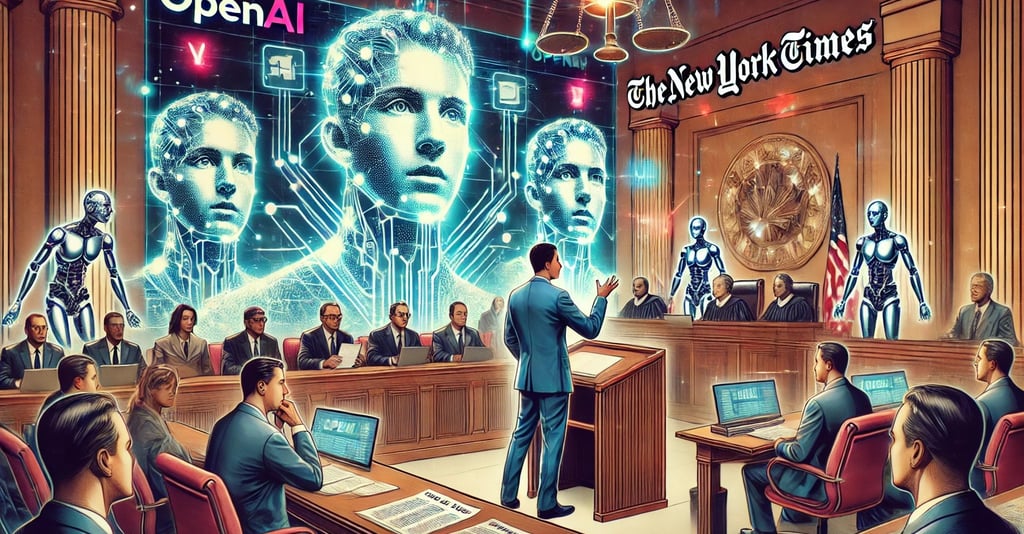OpenAI CEO Sam Altman Criticizes New York Times Over Copyright Lawsuit
OpenAI CEO Sam Altman recently criticized The New York Times over its lawsuit alleging copyright infringement by ChatGPT. He argued that such legal actions hinder technological progress and innovation, emphasizing AI's potential to serve the public good while reshaping copyright laws.
AI NEWS


Sam Altman Takes a Stand on AI Copyright Dispute
In a recent high-profile interview at the New York Times DealBook Summit, OpenAI’s CEO Sam Altman addressed the ongoing lawsuit filed by The New York Times accusing OpenAI of copyright infringement related to its popular AI model, ChatGPT. Altman boldly declared that the legal action put the prestigious newspaper "on the wrong side of history," stirring up discussions about how AI interacts with intellectual property laws.
Background of the Lawsuit
The lawsuit, filed in December 2024, centers around claims that OpenAI's ChatGPT, an advanced generative AI, uses content from The New York Times without permission. The paper argues that AI systems trained on vast datasets containing copyrighted materials violate copyright laws, with some calling for a reevaluation of how AI is used for content generation.
Altman’s Response: Advocating for Technological Progress
In his remarks, Altman explained that the lawsuit overlooks the larger potential of AI technologies, which he believes can contribute significantly to societal progress. He suggested that such lawsuits stifle innovation and prevent society from realizing the full benefits of AI. Altman emphasized that OpenAI's models are designed to assist in a variety of industries and serve the public good, advocating for a balanced approach to intellectual property that encourages technological advancement without restricting it.
The Growing Tension Between Media and AI Developers
This legal battle highlights a broader issue facing the media industry and AI developers: the tension between protecting intellectual property rights and advancing AI technology. While media companies like The New York Times argue that their work is being exploited without compensation, AI developers contend that such models are transformative and should be treated differently from traditional uses of copyrighted material. Altman’s comments underscore the difficulty in navigating these competing interests as the AI field continues to expand.
Looking Ahead: The Future of AI and Copyright Law
As AI technologies continue to evolve, the clash between innovation and copyright protection is expected to intensify. OpenAI's stance, supported by Altman’s vocal advocacy, could set a precedent for how AI is regulated in the coming years. The outcome of this lawsuit could have far-reaching implications for AI development, intellectual property law, and the media industry as a whole.
The ongoing copyright dispute between The New York Times and OpenAI is not just a legal battle but a pivotal moment in the evolution of AI. As AI systems like ChatGPT grow more powerful, questions surrounding copyright, ethical use of data, and the balance between innovation and intellectual property will become increasingly urgent. The case is likely to influence future policies and legal frameworks around AI technologies.
Stay tuned for more updates on the intersection of AI and copyright law and its implications for the tech industry. Read more: "MIT Unveils Open-Source Dataset to Revolutionize Eco-Friendly Vehicle Design".